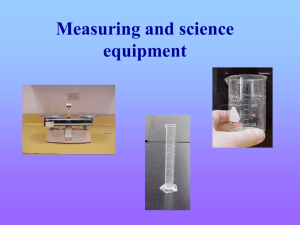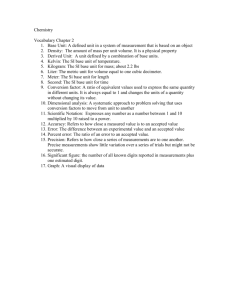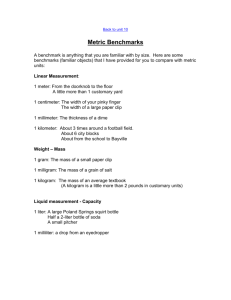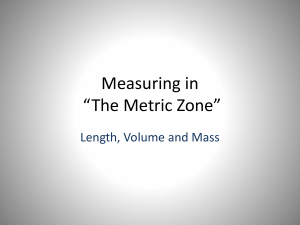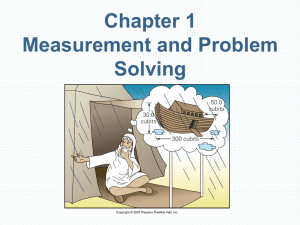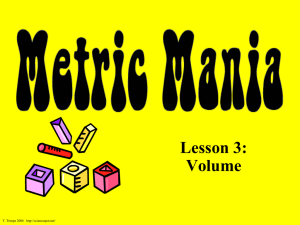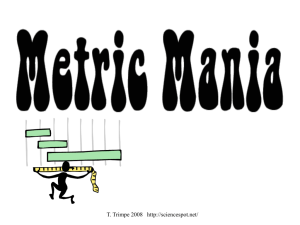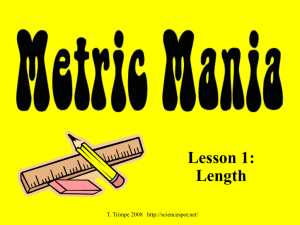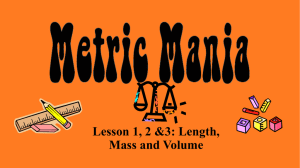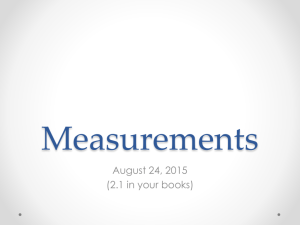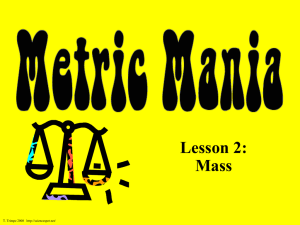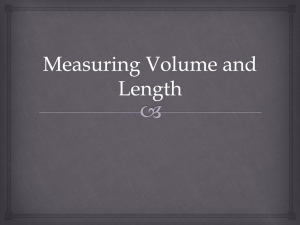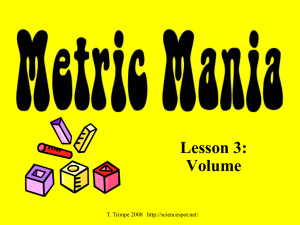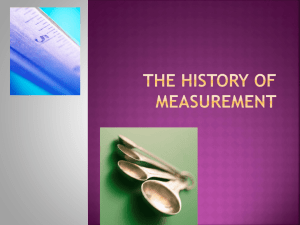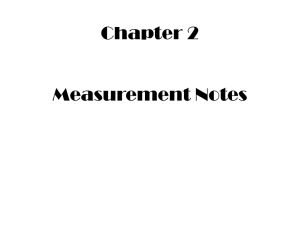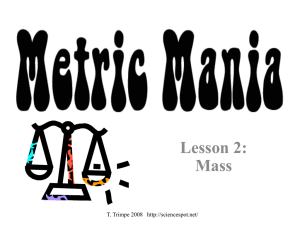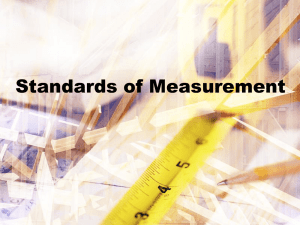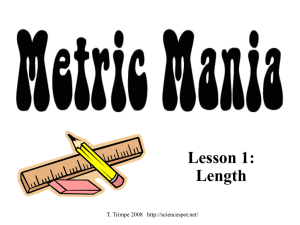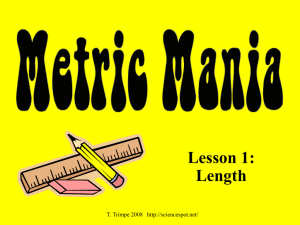Metric Units Volume
advertisement
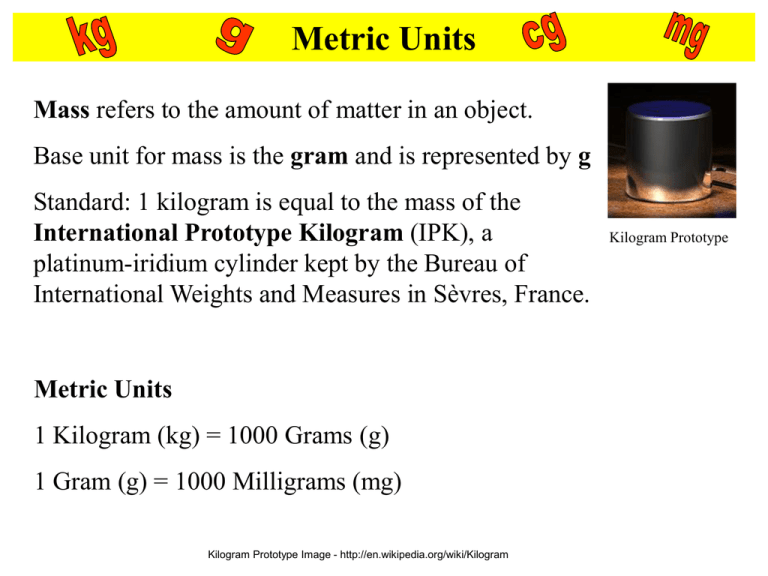
Metric Units Mass refers to the amount of matter in an object. Base unit for mass is the gram and is represented by g Standard: 1 kilogram is equal to the mass of the International Prototype Kilogram (IPK), a platinum-iridium cylinder kept by the Bureau of International Weights and Measures in Sèvres, France. Metric Units 1 Kilogram (kg) = 1000 Grams (g) 1 Gram (g) = 1000 Milligrams (mg) Kilogram Prototype Image - http://en.wikipedia.org/wiki/Kilogram Kilogram Prototype Triple Beam Balance • http://www.ohaus.com/input/tutorials/tbb/T BBins.html Metric Units Volume is the amount of space an object takes up. The base unit for volume is the liter and is represented by L Standard: 1 liter is equal to one cubic decimeter Metric Units 1 liter (L) = 1000 milliliters (mL) Measuring Volume We will be using graduated cylinders to find the volume of liquids and other objects. Read the measurement based on the bottom of the meniscus or curve. When using a real cylinder, make sure you are eye-level with the level of the water. What is the volume of water in the cylinder? _____mL What causes the meniscus? A concave meniscus occurs when the molecules of the liquid attract those of the container. The glass attracts the water on the sides. Top Image: http://www.tea.state.tx.us/student.assessment/resources/online/2006/grade8/science/images/20graphicaa.gif Bottom Image: http://morrisonlabs.com/meniscus.htm Measuring Solid Volume 9 cm We can measure the volume of a regular object using the formula length x width x height. 8 cm _____ X _____ X _____ = _____ We can measure the volume of an irregular object using water displacement. Amount of H2O with object = ______ About of H2O without object = ______ Difference = Volume = ______ http://resources.edb.gov.hk/~s1sci/R_S1Science/sp/e n/syllabus/unit14/new/testingmain1.htm 10 cm
